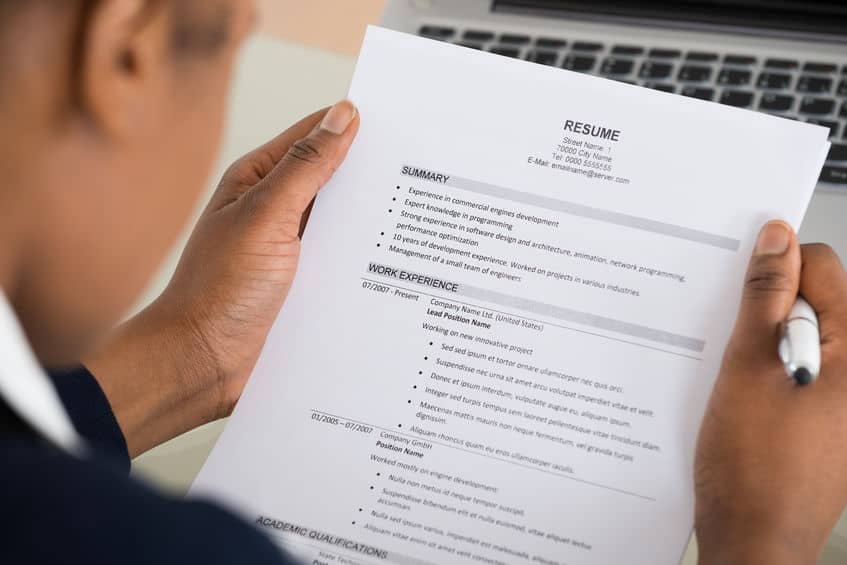When deciding to apply for a job, you may contemplate if you have enough experience. However, you might not think about your resume being too good. You may come across a job that you want, but you have too much experience.
Is my resume too good? Depending on the job, some resumes may look too good to employers. Having a lot of experience in an industry might turn off employers who can’t afford to pay much. Some companies don’t like the idea of having to retrain someone. Those companies avoid these problems by hiring someone with less experience.
If you have a long resume, you should be proud of what you’ve accomplished in your career. A long resume is a good problem to have since you know you can get a job and do it well. However, you may need to adjust your resume to stand out to certain employers.
Problems of Having a Good Resume

Having a good resume can seem like the best thing for your job search. The best resume can help you show off your experience so that you can land an interview. However, you might run into problems if a company thinks your resume is “too good.”
One example is if you apply for an entry-level job when you already have some experience. Consider what an employer might think about it.
- When you have too much experience, the employer might think you will be bored with the work.
- Some employers might also not want to retrain you to do things their way. It can be easier and cheaper to hire someone without any experience.
- For better or worse, a company may not want to hire you if they think you’ll expect higher pay for your experience.
In most cases, having too much experience is the reason for having a resume that’s too good. However, you can still apply to jobs that don’t require the experience that you have. You just must get creative with writing and formatting your resume.
Should You Leave Info Off Your Resume?
When you include everything on your resume, it can get long. Even if your resume is fine for the job, you may want to leave off information to make it shorter. For example, a college graduate doesn’t need to include a high school job.
However, if you have a lot of relevant experience and credentials, you may want to leave some of that out. Certain things to leave out of your resume include graduation dates and high-level job titles.
While employers can’t discriminate based on age, your graduation date can tell employers how long you’ve been working. Even if you only include your last few positions, a graduation date from years ago signals to employers that you have been in the workforce for a while.
High-level job titles, such as in management, might also show employers that you have a lot of experience. If you are applying for an entry-level job, you can include the work experience on your resume. However, you don’t always have to list the position that you held.
Keep It Relevant
Whether you decide to leave information off your resume or not, you should keep everything relevant. If you’re applying to a job in another field, you will have a good reason to exclude certain things. On the other hand, if you’re staying in the same industry, you might want to include those details.
- The main goal of your resume should be to show that you’re the right fit for a job.
- Excluding irrelevant jobs can be a great way to keep your resume short and polished.
- If you apply to a few different positions, you can create resumes to fit each one.
- Even if you have a lot of experience, don’t be afraid to include it on the right resume.
- You may come off as too good, but that’s better than a company thinking you don’t have the experience they want.
Making your resume relevant to the jobs you apply to can help you land the right position. Of course, some employers may think you have too much experience. However, some will appreciate the information so that they can make the right hiring decision.
Consider the Position

Really focus on the actual position when applying for a job. This means including only previous experiences that are related to that job.
For example, maybe you had a higher position in your field. Perhaps you took a break from the workforce or switched to another industry. Now, you’re coming back to the field, but you’re applying to entry-level work. In that case, you may not want to include work from other industries.
You should also consider whether you should list the relevant job title or simply the company. To do this, research the company and see if they have strict policies. They may only want to hire people without much experience so that they can train them.
Use whatever you learn about a company to determine if a position is worth including on your resume. If your experience includes companies that are competitors or familiar industries to the job posting, it would be to your advantage to include that in your resume.
Change the Format
Another thing you can do to keep your resume from looking too good is using a functional resume format. With this format, you highlight your accomplishments rather than how much experience you have. Of course, you can list the jobs you’ve had, but you list them based on your skills rather than the time frame.
- A functional resume typically includes a resume statement, and you can include any relevant skills for the job.
- You can organize the rest of your resume by skills or themes. That way, you can group positions based on what you accomplished.
- In addition to listing work experience, you can highlight projects that you have done that can help you in the prospective job.
- After you list your skills and accomplishments, you can include your work history.
While chronological resumes are popular, they aren’t the only format you can use. If you feel like you have too much experience, you can highlight that in a functional resume. Not only can you still list your work history, but the resume will focus on other things.
Include Your Strengths
Even if you have too much experience for a job, you should still create a resume that you’re proud of. You may not want to include your entire work history. However, you should include something about your strengths and how they can help you in the position.
Perhaps you have executive experience and are applying for an entry-level job. If you are able and willing to adapt and learn, include those skills on your resume. While some employers may not want to hire you, others will appreciate your honesty.
If they see that you can adapt to new methods, they might be willing to give you a chance. Make sure not to over exaggerate and include adaptability as a skill if you have a hard time with that. However, you should include your biggest strengths that would help you and the company.
Underneath each position, focus on the parts of the job that have prepared you for the role. You don’t have to list all your responsibilities, but you should list those that the company is looking for. When it comes to listing degrees, you can list what you learned in those degrees that might help you on the job, too.
Final Thoughts
Many job seekers wonder if their resume is good enough to land the job, and others worry if their resume is too good. The second situation isn’t a bad problem to have, but you can do a few things to fix it. By focusing on the position you want, you can eliminate irrelevant experiences and focus your resume for the specific job.
